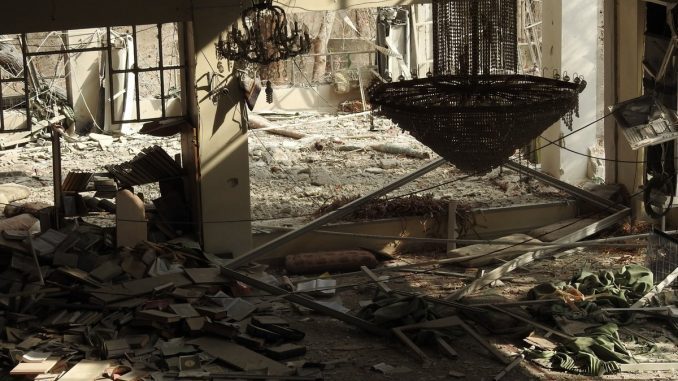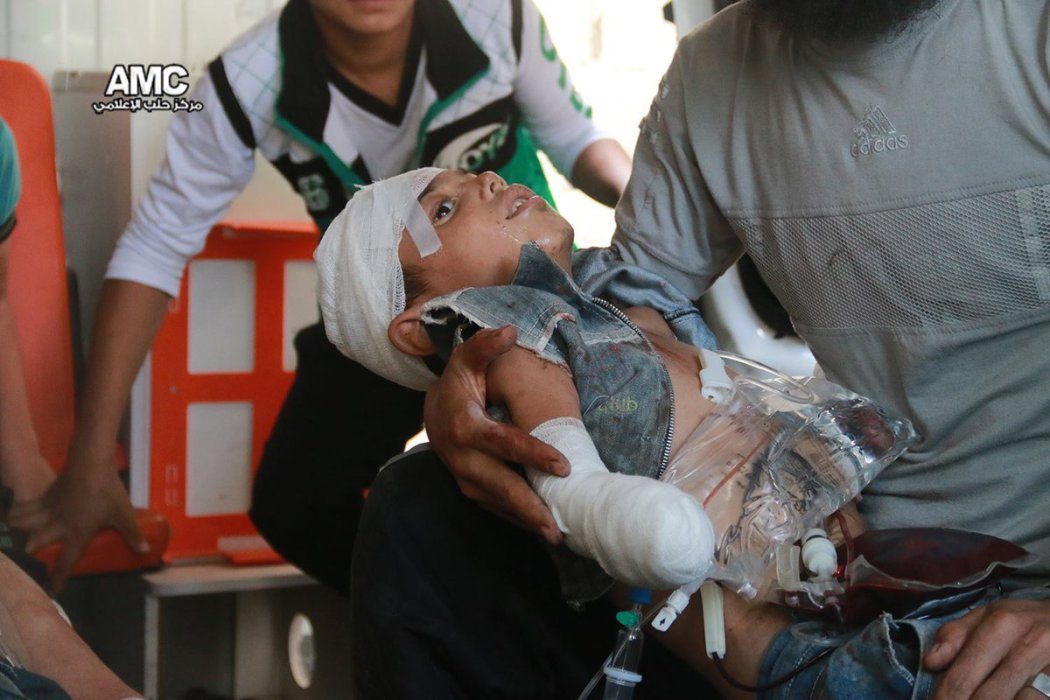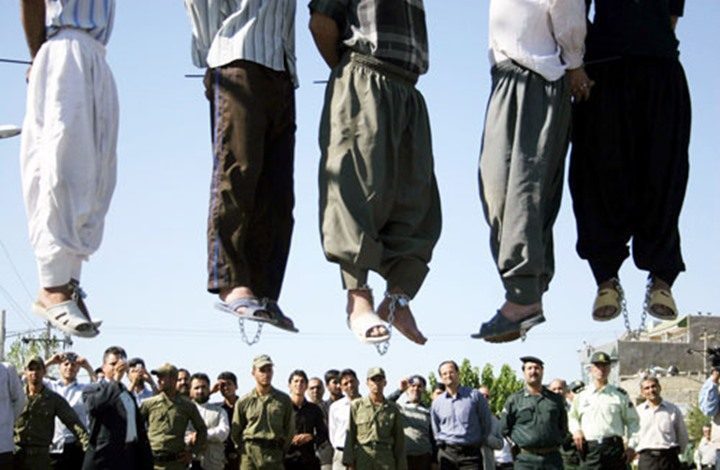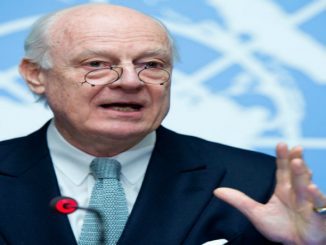
Assad regime and allied militia said they have reached a ceasefire agreement with the rebels in Wadi Barada to allow repair the water system the has been cut, preventing 5 million in Damascus of getting water. However, the rebels denied this news.
Russian President Vladimir Putin said that that Syrian opposition groups and the Syrian government had signed a number of documents including a ceasefire deal that will be guaranteed by Turkey and Russia.
The documents include a ceasefire agreement between the Syrian government and the opposition, measures to monitor the ceasefire deal and a statement on the readiness to start peace talks to settle the Syrian crisis, Putin said.
Moscow has said they would take place in Kazakhstan.
The truce, which is the third announced this year, came into effect at midnight on Thursday and follows the evacuation of Aleppo and the city’s surrender to forces loyal to Bashar al-Assad. It covers all areas of the country except those under Islamic State control.
However, the truce didn’t prevent the clashes, as Assad regime and his Iranian-backed allies continued their attacks on different areas in Syria including Idlib, Hama and Aleppo. The most fierce attacks was around Damascus in the area called Wadi Barada.
Wadi Barada bombed
Assad regime forces backed by Hezbollah and Shia militias have launched the attack on Wadi Barada valley since two weeks, with daily bombing and air raids on the area.
Rebels say the army is seeking to recapture the area, where a major spring provides most of Damascus’s water supplies and which lies on a major supply route from Lebanon to the Syrian capital used by Hezbollah.
The daily clashes are associated with heavy shelling operations by the regime forces using tanks, artillery and mortar shells, and the launching missiles believed to be ground-to-ground, along with airstrikes by warplanes and the barrel bombs of the helicopters, which left tens casualties and injuries
The government assault has coincided with a severe water shortage in Damascus since December 22. Images from the valley’s Media Center indicate its Ain al-Fijeh spring and water processing facility have been destroyed in air strikes. Rebels say the government bombed the water pumping station at the start of the campaign
The government says rebels spoiled the water source with diesel fuel, forcing it to cut supplies to the capital.
Activists said the Hezbollah militia has prevented Russian figures who tried to resolve the problem form entering to the region.
Wadi Barada has been surrounded by government forces since mid-2015, but the siege was tightened in late December as the army piled on pressure seeking to secure a “reconciliation” deal.
It has won several of these deals in opposition areas around the capital, offering safe passage to surrendering rebels in return for retaking territory.
The opposition criticizes them as a “starve or surrender” tactic.
The opposition forces said they will not abandon their land, and called on the global powers in UN to save the water reserve and source.
The Syrian rebel factions said they are freezing any participation in the peace talks until the current offensive is stopped.
#وادي_بردى
Video from Assads media shows how the Assad regime forces targeted civilian homes #WadiBaradahttps://t.co/zYuC8Vmxfz— وادي بردى (@w_barada) January 3, 2017
#وادي_بردى #WadiBarada
صور لنبع #عين_الفيجة الذي يعتبر مصدر مياه الشرب الرئيسي لسكان العاصمة #دمشق قبل و بعد إستهدافه من قبل قوات النظام pic.twitter.com/9CRDAcHKH6— وادي بردى (@w_barada) December 26, 2016
#الهيئة_الإعلامية_Barada
النظام يصعّد قصفه الجوي والصاروخي ويوسع هجومه على #وادي_بردىhttps://t.co/Elm9ZuG2BX— وادي بردى (@w_barada) January 6, 2017
An alleged ceasefire in Wadi Barada
Government media on Friday reported that a ceasefire agreement has been reached between pro-Assad forces and rebels in the opposition-held region of Wadi Barada.
A military news outlet run by Hezbollah reported that a ceasefire had been reached for “a number of hours” in the area.
However, senior rebel sources denied reports of a ceasefire, telling Reuters no such deal had been reached.
Munir Sayal, head of the political wing of the Ahrar al-Sham rebel group, said that the government had on Thursday rejected a ceasefire that would have allowed for repairs to the water pumping station and for people to return to two nearby villages from which they had been displaced.
“Iran and the Assad regime are exploiting the fragile ceasefire to seize liberated areas around the capital before the start of the Astana negotiations,” Sayal said.
Civil organizations in the area said they were ready to find a solution to the water crisis that doesn’t include the civilians’ displacement.
they also called the UN to check the rubble for pieces of evidence of Assad regime responsibility of the attacks.
” We reaffirm our readiness to facilitate the access of technical teams from the red cross and united nations to assess the situation around Ein al-Fijah and the facilities operating there, in addition to documenting the remanents of rockets and weapons used to bomb the spring,” they said in a statement.
“We are willing and ready to accompany the assessing and maintaining teams to Ein al-Fijah spring to facilitate resupplying fresh water.”
The Syrian crisis began as a peaceful demonstration against the injustice in Syria. Assad regime used to fire power and violence against the civilians and led to armed resistance. 450.000 Syrians lost their lives in the past five years according to UN estimates, and more than 12 million have lost their homes.



